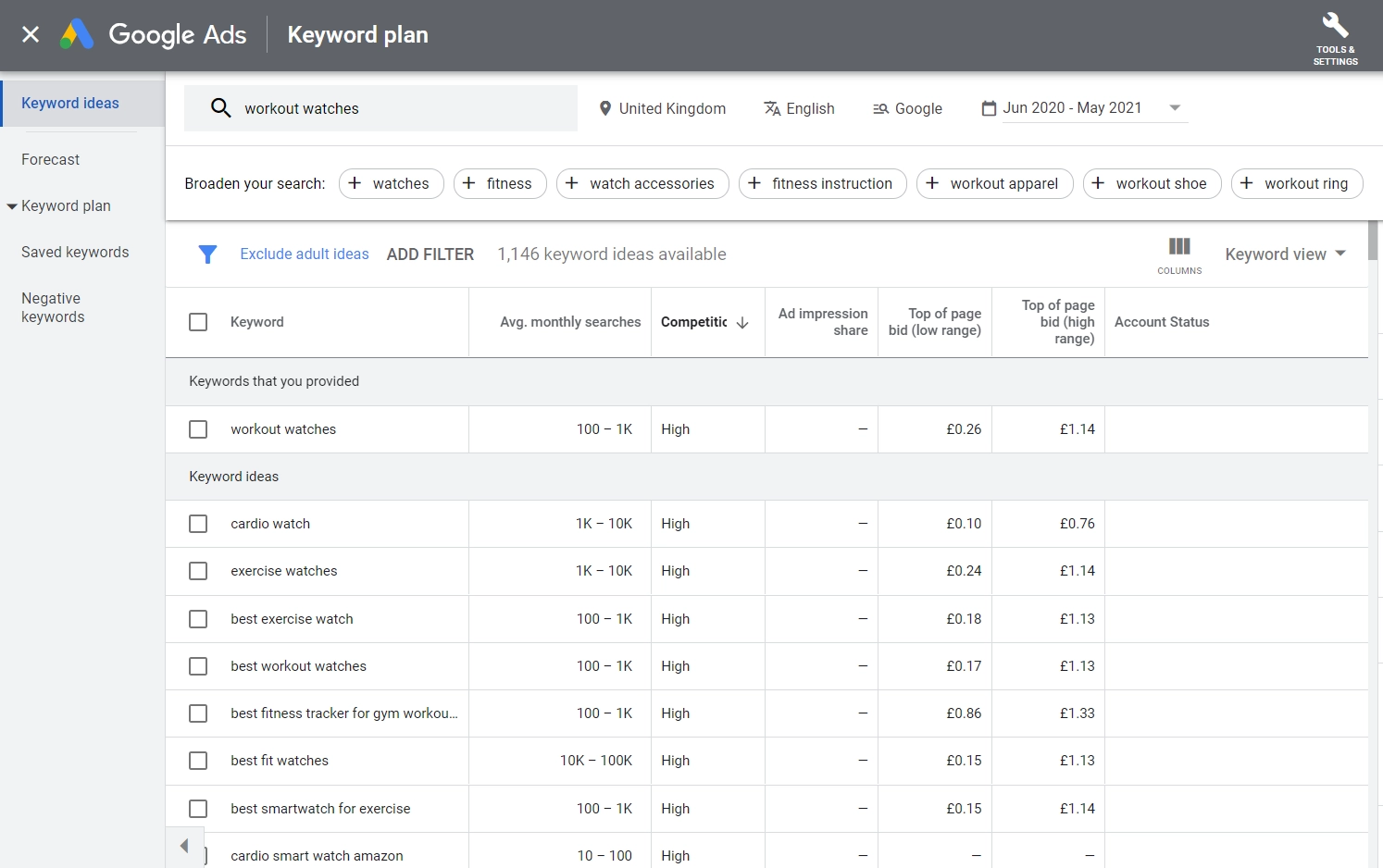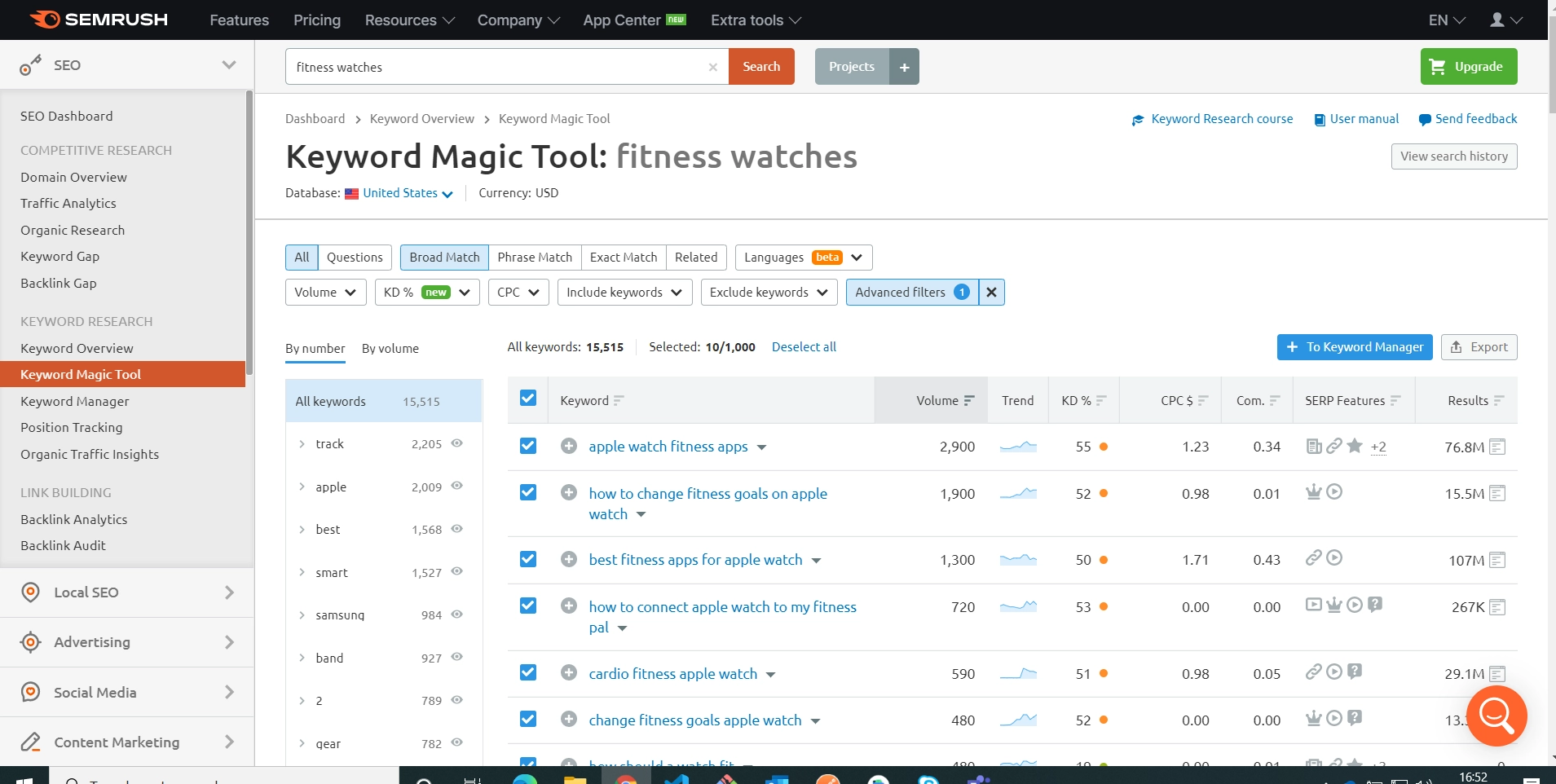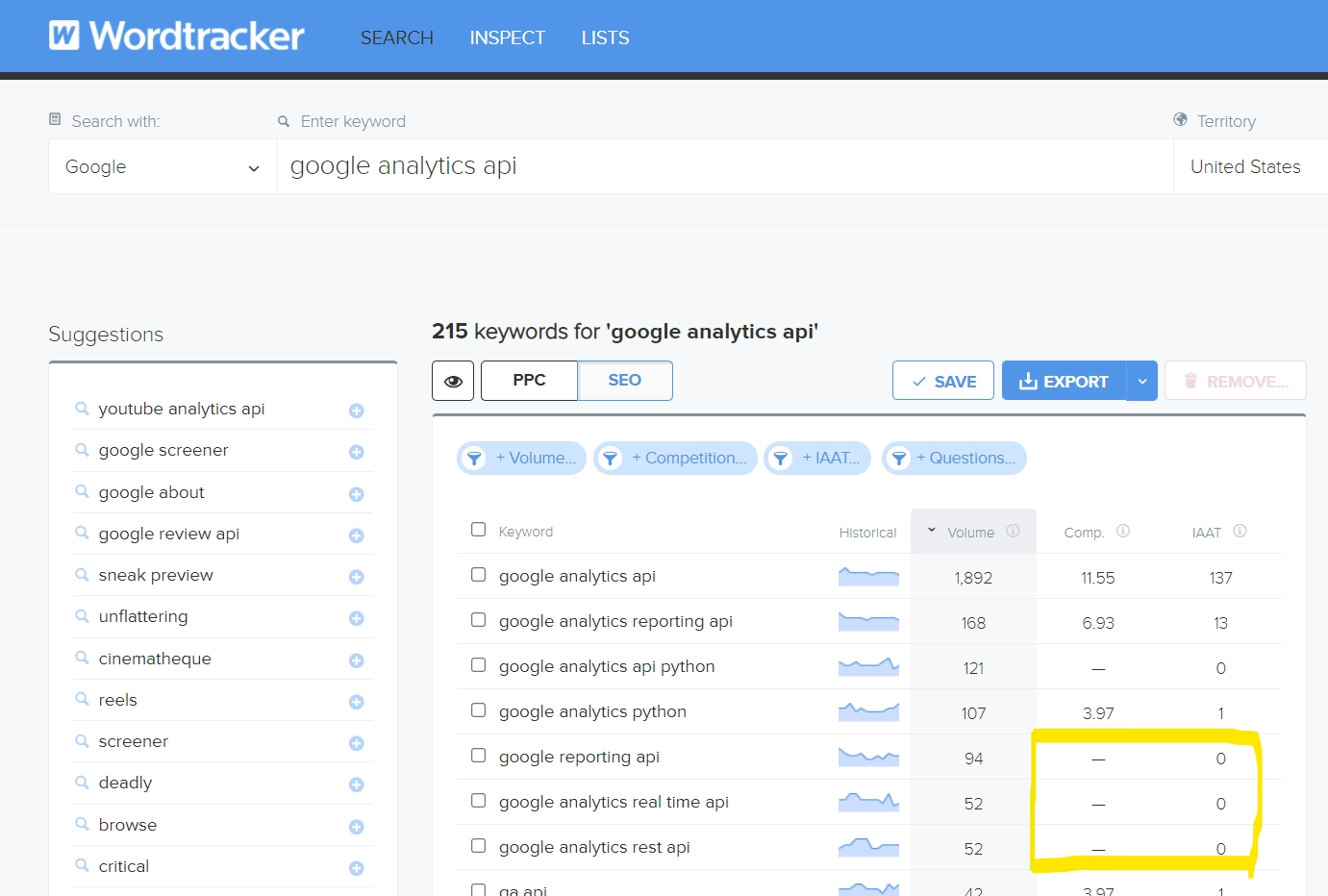I see a lot of people online asking about keyword research asking questions like ‘How do I find good keywords to get more traffic to my website?’ or ‘how do I use googles keywords tools’ There are so many SEO keyword research tools out there and many have some free tools within them available, google keywords tools being one popular option. However there’s also a lot of common sense involved, and a few search techniques that it’s worth learning to help you find a good list of keywords to try and generate more traffic to your blog or website.
This post is intended as a getting started with SEO post, a “How to do keyword research for SEO – a beginner’s guide” if you like. It will help you if you are just getting started with your affiliate website, or if you have a business and want to get more traffic to your website. In this post I hope to give a good introduction to researching SEO keywords using mostly free tools.
Use Google Keywords tools to research keywords
A really quick and easy way to gather some good keywords to target is to use the hints Google gives you when you start typing in the search bar. For instance, if we were looking to attract new users to our website who were looking for “running sports watches” then I’d start my research by going to google.com. Start typing “running sports watches” and you’ll notice that as you type, Google starts creating a list of matches that become more and more accurate the more you type. This list is made up of terms that people are already searching for, so Google is giving you free data about popular search terms. If a keyword is in this hint list, then it must have decent ‘volume‘. If you’re new to SEO you may not know what I mean by ‘volume‘. In this context it means the volume of searches that a particular keyword receives each month. The ultimate goal of SEO keyword research is to find search terms with high volume and low competitiveness – that is a high volume of monthly searches, and a low number of websites providing the relevant information to the user.
As well as Google you can also use Quora, Reddit and YouTube to do some keyword research. Go to Quora.com and start typing “best sports watches” in the search box and again you see a list of possible search terms appear showing you popular search terms. This may also direct you to pre-existing groups discussing your topic and reading and participating in these groups can provide a valuable source of information for your keyword research, simply by seeing what information people are trying to find.
Once you’ve completed that bit of general research you should have a fairly long and general list of keywords relating to your particular subject, or niche as it’s referred to in relation to an affiliate website. Next you can start to use the SEO tools available, many of which have some tools available to use for free.
Other free SEO keyword tools
Here are some other tools and techniques I use to research keywords for SEO (in no particular order).
- As above use specific niche forums for keyword research – and also use forums to do with keyword research (https://moz.com/community/q/). For instance if I was looking for gardening keywords I’d use gardening forums for my research in either Quora.com or Reddit.com.
- Further to what I’ve written above about using Google search box hints, there’s a handy website which takes this a little further and ultimately speeds up this process – https://youautocompleteme.io/. This will give you a page of keywords which you know have some kind of volume that’s worth targeting, organised in alphabetic order, and presented in a way that makes them easy to copy, ready to paste into other tools.
- Use Google Ads Keyword Planner. Despite the name you don’t need to be running any ads, or spending any money to use this tool. You enter your search term for instance “workout watches” and this keyword tool will show you the data for this term. It will also provide you with a long list of related keywords and the data for those too. The trick here is then to find a decent sweet spot where the volume is high enough to make targeting that keyword worthwhile, while the competitiveness low enough that you’ll have some success targeting it. Use the filters to limit your results only to those with Medium competition. Then work your way through the table of keywords until the volume is high enough for your needs – any keyword sitting at that point is your sweet spot. However you can see the volume figures given are very broad, so read on to find which tools give a specific search volume figure helping you target the right keywords.

There is also a Forecast section which shows you predicted search traffic likely number of impressions and click throughs.
4. Install one of several SEO browser extensions directly into Chrome or Firefox. You could use keywordseverywhere.com/, also the Surfer SEO browser extension for finding keyword volumes.
5. Semrush have a lovely tool available under their free plan, and I particularly like the Keyword Magic Tool. Enter your main search term and the tool then returns a list of related search terms again with volume, competitiveness, and other data. With a full range of filtering and sorting available it doesn’t take long to turn this into a really handy list of keywords to target. The only downside here is there is no easy way to save this list, as any export functionality or keyword management is only available on a paid plan. Having said that the paid plan does contain tons of value though so may be worth using the free trial to try it all out.

Paid keyword tools
In most of the paid SEO keyword tools you’ll get access to detailed volume and competitive data about each term, broken down by country and presented in a slightly different way in each tool. In the paid services number of keywords is unlimited, you can use all the benefits of the keyword management tool.
Moz.com offers mostly paid services but a few really useful free tools once you’ve signed up (no charge or credit card required.) This includes the keyword explorer which is the same as you get on the paid plan but you are limited to 10 searches per month – use it wisely! One of the things I particularly like about this tool is the measure of intent – i.e it gives you an indication of how worthwhile it thinks you putting your time into targeting that keyword is.
Semrush is pricy but also has some really special tools, the magic keyword tool is one I’ve already mentioned. It also has a fantastic Keyword Manager which lets you categorise and store your keywords. It has a content suggestion tool, and a nice keywords tracker tool.
Ahrefs has a lovely summary view of your website traffic, keywords, and backlinks and it tends to be my goto for watching my website pick up new keywords each day. It definitely seems to be the one that is updated the most frequently.
Wordtracker – I really like the keyword research tools in here and for about $30 per month I feel like it’s a really good entry level tool if you haven’t got the budget for Semrush or Ahrefs paid plans. I have done my keyword research in here and used the Lists section to save and organise keywords I want to target. It is worth noting that I have unfortunately found Wordtracker to be fairly buggy, but as it’s the only tool so far that gives me value for less than $100 per month I’ve stuck with for a while. In the image below you can see that I’ve done a keyword search for the phrase ‘google analytics api‘ using Wordtracker. I’m shown a list of results of related search terms and the search volume, competitiveness, and IAAT for each. IAAT is described as ‘In Anchor And Title – A count of webpages on which the keyword appears in both the title tag and the text of a backlink‘. So if you were to choose one of those phrases, write a blog post with that phrase in the title, and get just one backlink with the keyphrase in the backlink text, you will probably place really highly for that search term. Whilst none of those volumes are massive, once you’ve written 20 or 30 blogposts where each post attacts good traffic from several keywords with a volume of 100 or so searches a month, the overall traffic volume to your website can become large enough to start making money from advertising. I like the simplicity of these results in Wordtracker.

Other valuable SEO resources
Neil Patel’s UberSuggest is very much worth a look, as are many of his blog posts, which are really informative. Not only does he offer fantastic insights into many SEO and keyword research topics he also has several free SEO tools which can be worth using depending on your exact needs.
Google search console (one of several google keywords tools) – look at the impressions. This is telling what people are searching for already, and somewhere buried deep in those results sits your website. Obviously this tip is only useful if you already have a website and if the niche your researching already has some vague link to your site – it can be a real gold mine.
What’s the point of all this research!
Ultimately we are doing all of this research to find some SEO keywords which have a good volume of traffic potential and a relatively low amount of existing competition, or to put it another way the keywords which are most likely to give you a return for your efforts. And the point of doing that is to monetize your website in some way, whether it be gaining new customers for your business, selling more products from your ecommerce website, or making more by showing more ads on your affiliate website. To make money from a website you must have traffic.
To summarise
There are so many SEO keyword research tools on offer – Google keywords tools, Moz.com Semrush, Ahrefs etc – and each one has it’s own strength. I’d definitely recommend trying each of them out on a trial month before you settle on one, and learn which bit of which tool works well for your needs.
